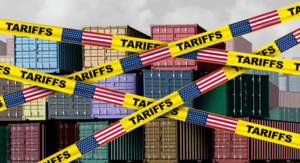
Political Stability
Political stability plays a pivotal role in shaping the trajectory of a nation’s sustainable development. It serves as the bedrock upon which economic progress, social well-being, and environmental sustainability thrive.
The relationship between political stability and sustainable development is intricate, influencing various facets of a nation’s growth. Here are seven key points highlighting the profound impact of political stability on sustainable development.
Table of Contents
Political Stability
Political stability is the bedrock for sustainable growth, fostering an environment of confidence for investments, innovation, and societal progress. When governance remains steady, policies gain continuity, attracting businesses and enabling long-term economic plans.
Stable political climates encourage infrastructure development, foreign investments, and social stability, laying the foundation for sustainable growth. This stability minimizes uncertainties, allowing nations to focus on holistic development, equitable distribution of resources, and fostering a conducive atmosphere for progress across sectors.
1. Economic Growth and Investment
Political stability serves as fertile ground for economic expansion and draws in foreign direct investment (FDI). The World Bank notes its pivotal role, observing that nations with stable political landscapes witness heightened investments, spurring robust GDP growth.
Research underscores this correlation, indicating a mere 1% enhancement in political stability can yield a 0.5-1.5% annual GDP growth surge (World Bank, 2018). This symbiotic relationship underscores how stability begets prosperity, compelling investors and fostering an environment conducive to sustainable economic advancement.
Political harmony becomes a linchpin, propelling nations toward greater financial resilience and attracting the influx of vital external capital essential for growth.
2. Poverty Alleviation and Social Progress
Stable governance is pivotal for curbing poverty and fostering societal advancement. Nations boasting enduring political stability often exhibit robust poverty alleviation initiatives, bolstered healthcare infrastructure, and enhanced educational accessibility.
The United Nations Development Programme (UNDP) underscores the correlation between stable political environments and heightened Human Development Index (HDI) scores among countries.
This positive association signifies progress in education, healthcare, and income levels (UNDP, 2021), illustrating how political stability acts as a cornerstone for elevating the well-being and prospects of societies, underscoring the critical role it plays in fostering holistic development and societal progress.
3. Infrastructure Development and Public Services
Political stability fosters continuity, empowering governments to strategize and execute long-term infrastructure projects. This environment supports committed investments in roads, bridges, and utilities, enhancing public services.
According to the Asian Development Bank (ADB, 2019), stable political climates correlate with increased budget allocation for infrastructure development. Such endeavors not only uplift citizens’ lives but also foster a conducive environment for businesses.
Consequently, sustained political stability serves as the bedrock for sustained growth and prosperity, ensuring societies flourish through robust, well-planned infrastructure advancements.
4. Environmental Conservation and Sustainability
Sustainable development hinges on environmental care, tightly linked to political stability. Unstable governments grapple to enforce regulations, fostering resource overuse and insufficient conservation. In contrast, stable nations tend to uphold environmental policies, evident in their superior environmental performance.
This connection between stability and effective environmental governance underscores the significance of political cohesion in fostering sustainable practices. The correlation, as per UNEP (2020), emphasizes how political stability plays a pivotal role in nurturing responsible environmental stewardship, ultimately shaping the trajectory of sustainable development worldwide.
5. Long-Term Policy Implementation
Political stability enables the crafting and execution of enduring developmental strategies. Governments leverage this stability to design comprehensive, multi-year plans, ensuring consistency in developmental efforts.
The International Monetary Fund’s (IMF) research emphasizes the direct link between prolonged political stability and successful policy implementation, along with bolstering institutional capabilities (IMF, 2019). This environment fosters continuity, allowing for the cultivation of robust, long-term policies that drive sustainable growth and progress.
The correlation established between stability and effective governance underscores the pivotal role stable political landscapes play in nurturing sustained economic and social development on a substantial scale.
6. Social Cohesion and Stability
Political stability engenders social unity and peace by mitigating unrest and conflict within societies. Nations boasting stable political landscapes experience reduced social upheaval and violence.
The Institute for Economics and Peace (IEP) highlights the inverse correlation between political stability and instances of violent turmoil, underscoring governance’s pivotal role in fostering societal harmony (IEP, 2023).
A stable political environment acts as a linchpin for cohesive communities, facilitating mutual understanding and collaboration among diverse segments, ultimately paving the way for a more harmonious and tranquil society.
7. Global Competitiveness and Collaboration
A nation’s political stability shapes its global image, fostering trust and partnerships in international dealings. Such stability fortifies collaboration and bolsters competitiveness on the world stage. The World Economic Forum underscores this, linking stable political landscapes to elevated global rankings.
Regulatory efficiency and business-friendly policies flourish in politically steady nations, amplifying their attractiveness for investments and alliances. Ultimately, stability not only ensures reliability but also propels a country’s standing in the fiercely competitive global arena, as emphasized by the WEF’s Global Competitiveness Report of 2022.
Bottom Line
Political stability serves as the cornerstone of sustainable economic development, influencing economic prosperity, social welfare, environmental conservation, and global standing. Amidst the intricate path of sustainable progress, ensuring a stable political climate emerges as a crucial necessity.
It forms the bedrock on which nations build lasting advancements, offering a stable foundation for holistic growth across diverse spheres, vital for the enduring pursuit of progress.







